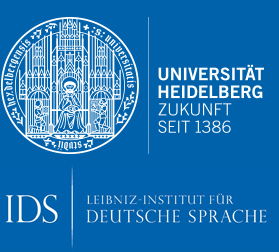Here you will find the abstracts of the articles published in the Online Handbook. These articles discuss concepts that are inductively deduced from linguistic cultures and include fundamental language-critical topics such as “language criticism and language norms”, “language criticism and standardization”, “language criticism and language purism” as well as “language criticism and language institutions”. You may access the comparative articles reflecting these topics by means of language comparisons and cultural comparisons (for German, English, French, Italian, and Croatian) via the tab “language criticism in European comparison”.
Recent article:
Institutions with a language-critical agenda in the UK
Abstract. Since its beginning in the 15th century, the standardisation of English in Britain has largely been carried out without governmental control. Thus, there has never been any language institution comparable to the Italian Accademia della Crusca and the Académie Française in Britain, despite several attempts at establishing one in the 17th and 18th century. Nevertheless, the cultivation and codification of the English language was supported by a number of influential academic societies. The general tradition in Britain is, however, largely in favour of descriptivism rather than prescriptivism of language norms, even though individuals and societies voicing prescriptive attitudes have always been present. The ability for expressing oneself in “correct” English if the situation requires it thus remains to be of high social significance.
Read and download the complete quotable article here.
Linguistic purism and language criticism in English
Abstract. Linguistic purism refers to an activity which aims at cleansing a language from unwanted influences. However, what counts as an ‘unwanted influence’ usually rests on certain social ideals that are not necessarily shared by all members of a society. These ideals may be oriented towards a nostalgic conception of the past, towards certain ethnographic varieties, or towards the language usage of a conceived social elite. This article gives an overview of different language-purifying attempts made with respect to British English in the course of its history. In comparison with other languages, it is remarkable that purifying efforts have never exerted any larger or longer-lasting influence on the English language, despite or because of the diverse situations of language contact that it was involved in.
Read and download the complete quotable article here.
Click here to read the article “Linguistic purism and language criticism in European perspective”
Standardisation and language criticism in English
Abstract. In negotiations of what a standard language is or should be, language criticism – with its evaluation of language and its speakers – has a central role. The article gives an overview of how the attitudes towards standard written as well as spoken British English have developed and changed over time and in the various socio-historical contexts. From a diachronic perspective, a tendency can be observed which begins with an orientation towards the linguistic variety used by the sophisticated elite in the middle of the 18th century and gradually moves towards acceptance and appreciation of local dialects and new standard varieties other than British English in the 20th century. For a long time, however, the ability to use ‘correct’, i. e. standard language, has been associated with education, appropriate social behaviour and decorum. This view is still subliminally present in British English and other national varieties, such as American English, today. Standardisation also plays a role in the public debates about the politically correct use of certain forms of language as well as in academic discussions about the influence that linguistic discourse exerts upon the attitudes formed about certain social groups.
Read and download the complete quotable article here.
Click here to read the article “Standardisation and language criticism in European perspective”
Critique of language norms in English
Abstract. This article attempts to sketch by example how discussions about English language norms have developed from the late 16th century until today. These complex discussions are closely related to the processes of standardisation and codification of English. They reflect the changing social norms that are shaped in the course of the 18th and 19th centuries as a consequence of industrialisation and urbanisation, as well as through the emergence of the British Empire on the one hand, and the growing economic and political importance of the United States on the other. While the discussion of language norms in the 18th and early 19th century is largely normative and prescriptive, the late 19th and 20th century sees the emergence and development of a descriptive tradition focused on linguistic diversity mainly in academic discourse, which is further influenced by linguistic anthropology and sociolinguistics since the mid-20th century. Today, public discourse about language norms is still frequently prescriptive, which is reflected for instance in the debates about politically correct language use or a fixed linguistic norm in edu- cation, as well as in discussions about the alleged decline of the English language due to its growing role as international lingua franca and global language.
Read and download the complete quotable article here.
Click here to read the article “Critique of language norms in European perspective”

